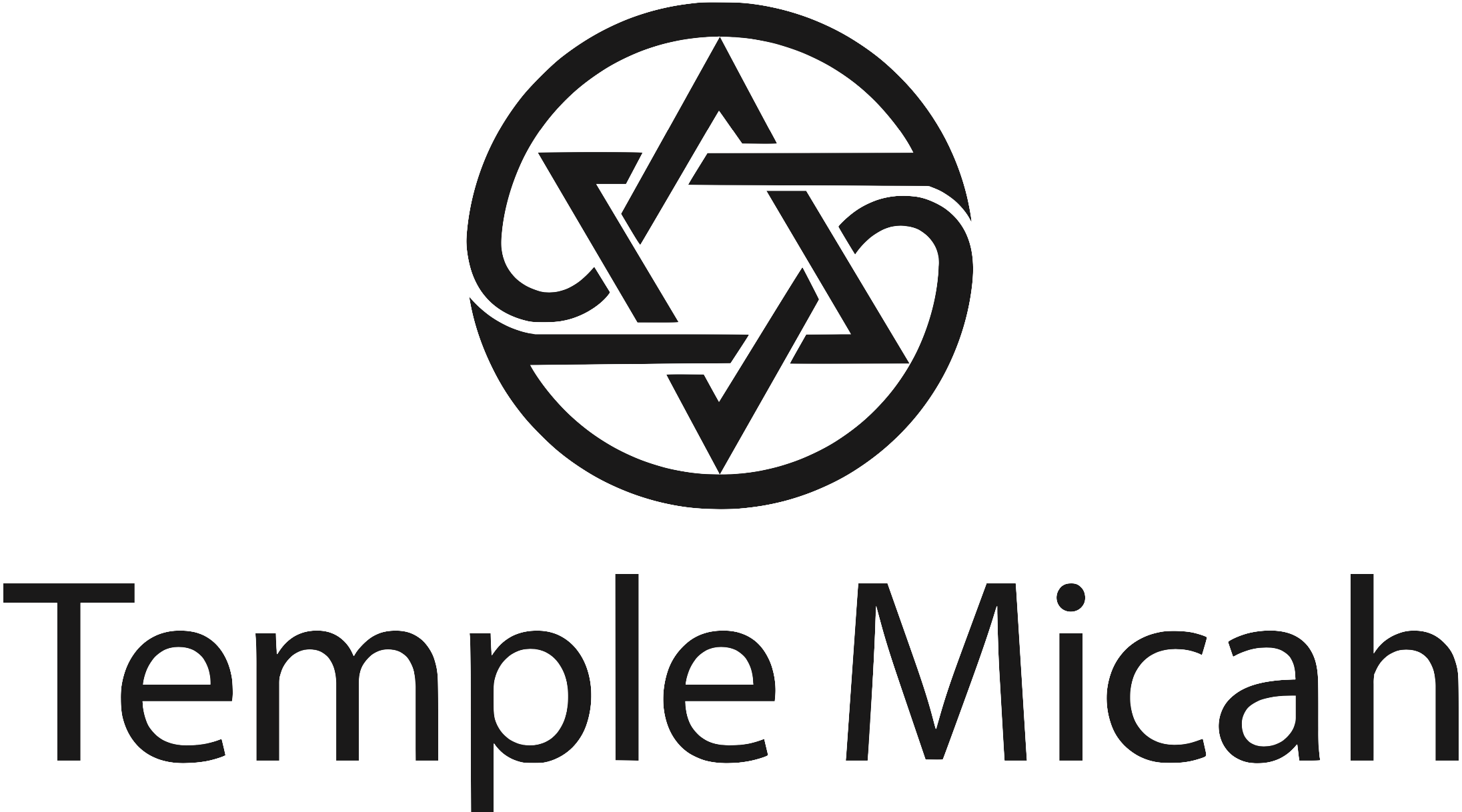Temple Micah Celebrating 50 Years of History
In the spring of 1969, a group of 30 liberal Jews gathered to create a new congregation which would be open and comfortable for all individuals wishing to realize their own personal connections to Judaism. They decided to name it after the prophet Micah, (737-690 BCE), who preached simply that we should be just, kind, and humble. The first official gathering of Temple Micah was a Friday evening service, held three weeks later on July 11, 1969, at the Rider College Chapel. It was “open to the public,” as would be all future Temple Micah services and events, including High Holy Day services.
In September 1969 the early leaders approached the Reverend H. Dana Fearon, then the pastor of the historic Presbyterian Church of Lawrenceville, and requested permission for their fledgling congregation to use the church’s beautiful sanctuary for its first High Holy Day services that fall. Dr. Fearon was enthusiastic about having a Jewish congregation share the church and establish an interfaith relationship. He presented the idea to his church Trustees who agreed to a one-year trial. The first High Holy Day service was held that fall with Rabbi Alexander Schindler, who was then a Vice President of the Union of American Hebrew Congregations. The Presbyterian Church of Lawrenceville has been Temple Micah’s shul ever since.
In 1970, Jack Mars, Temple Micah’s president, met Rabbi Albert Ginsburgh, who had both a traditional background and liberal philosophy. He became our first rabbi, a position he held for the next 22 years. After moving to Boston in the mid- 1970’s, he still commuted “religiously” for all scheduled services. Also in 1970, Alfred Beck, joined Temple Micah serving as our first Cantorial Soloist, and soon thereafter, Dorothy Koppelman, started a small but successful religious school, now named after a founder and former president, Irving Seligman.
In 1992, when Rabbi Ginsburgh retired, Temple Micah, for the first time in its history, searched for a new, part-time rabbi – not an easy task. We were fortunate to attract Rabbi Ellen Greenspan, who had served as an Assistant Rabbi and Director of Education at Congregation Rodeph Shalom in Philadelphia, and in the fall of 1992 she officiated at her first High Holy Day services. Rabbi Greenspan brought new energy and innovation to the congregation and also built a vibrant religious school with 60 children, grades 2 through 10. In 1998, we were blessed once again when Adrienne Rubin joined our Temple Micah family as Cantorial Soloist. Her beautiful voice and smile bring warmth to all of our services.
In the fall of 2012 after 21 years leading Temple Micah, Rabbi Greenspan moved to Montreal and we welcomed Rabbi Vicki Seren Tuckman, only our third rabbi after 43 years. Under Rabbi Tuckman’s leadership, Temple Micah’s membership and Religious School grew significantly. Rabbi Vicki was much loved by all who were blessed to know her, but tragically she lost her battle with cancer in her 3rd year as our spiritual leader. For the following 2 years, Reconstuctionist Rabbi Roni Handler helped shepherd the congregation through its period of grief and then moved to a Philadelphia congregation closer to her home and her growing family. As Temple Micah approaches its 50th anniversary, with over 200 family members and a vibrant Religious School led by its incredible director, Sue Weiner, we look confidently to the future with our new rabbi, Elisa Goldberg.
Since Temple Micah’s beginning, the Presbyterian Church of Lawrenceville has played an important role in Temple Micah’s mission and success – Interfaith Services, Passover Seders and a host of other joint activities.
Temple Micah members and friends have always contributed generously to maintaining this beautiful and historic church which is our house of worship. After all, and we are who we are, in large part, due to our extraordinary relationship with their gracious staff and members. Behind all of this are the Board of Trustees as well as many other dedicated volunteers who serve the congregation. Surely Temple Micah will remain a vital institution in our community and always “open to the public” for many years to come.
